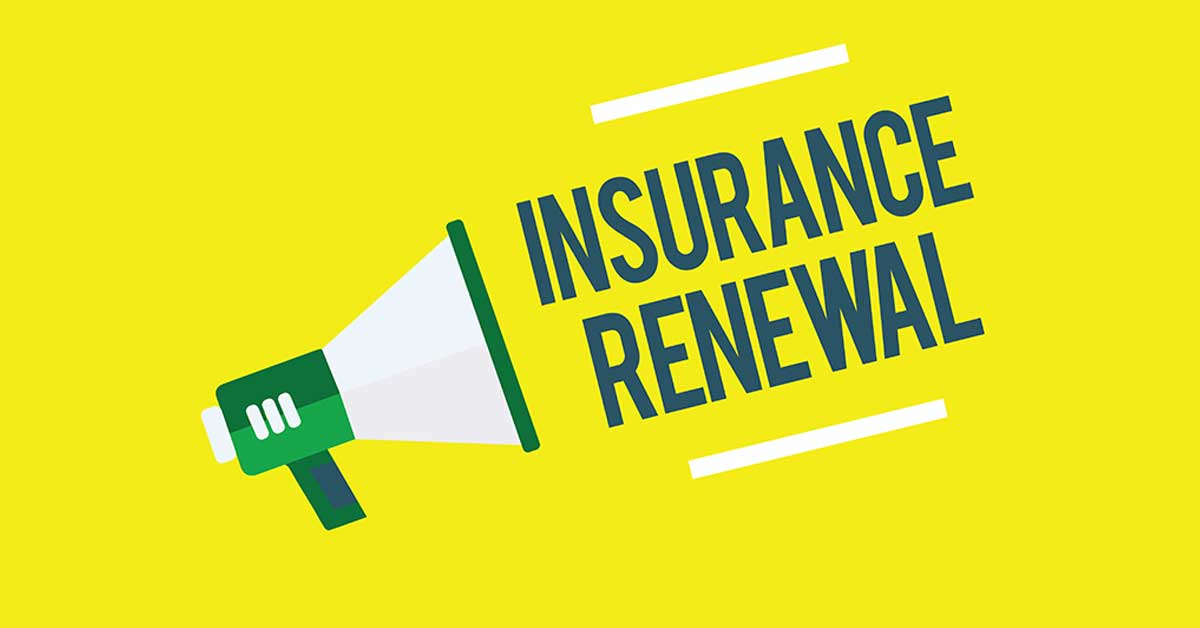
Insurance Renewal: What You Need to Know for a Smooth Process
Table of Contents
What is Insurance Renewal?
Insurance renewal is the process of continuing your insurance coverage after your current policy expires. Essentially, it’s when you agree to keep your insurance policy for another term, whether that’s a year, six months, or another time period. Most insurance policies have an annual renewal cycle, but the details can vary based on the type of insurance.
Why is Insurance Renewal Important?
Renewing your insurance ensures that you don’t experience a gap in coverage, which could leave you exposed to risks. Insurance policies usually have a set period, and once that period ends, you’ll need to renew the policy to maintain coverage. Without renewal, you could be left unprotected.
When Does Insurance Renewal Happen?
Your insurance renewal typically happens on the anniversary of when your policy started. Most insurers will notify you well in advance of the renewal date, often 30 days before the policy expires, so you have time to review your coverage and make any necessary changes.
Understanding Renewal Dates
The renewal date is the date when your policy will expire and when your insurer expects to renew your coverage. This date is crucial, as failing to renew on time could result in a lapse in coverage.
The Timing of Your Policy Renewal
It’s essential to keep track of your insureguide. net date. Most insurers allow you to renew your policy up to 30 days before it expires. In some cases, early renewal can also lock in your rates for a longer period.
How Insurance Renewal Works
The insurance renewal process typically involves your insurer sending you a renewal notice that details the new premium amount, any changes to your coverage, and other relevant updates.
The Renewal Process Explained
Insurance renewal is generally an automatic process, especially if your insurer offers automatic renewal. When this happens, your insurer will renew your policy with little to no action required on your part, except for paying the premium.
Automatic vs. Manual Renewal
- Automatic Renewal: With automatic renewal, your insurer renews your policy automatically, typically at the same terms unless notified otherwise. It’s convenient but requires you to review your coverage to ensure it still meets your needs.
- Manual Renewal: Manual renewal requires you to actively confirm your renewal. This process may involve adjusting your coverage, premium, and deductibles.
Factors Affecting Your Insurance Renewal
Several factors can affect your insurance renewal, including changes in premium rates, your claims history, and adjustments to your coverage needs.
Changes in Premiums
Your premium might increase during renewal due to inflation, changes in the insurance market, or modifications in your personal circumstances. Insurers often raise premiums after claims are filed, as they assess that you pose a higher risk.
Updates to Your Coverage
If there have been significant changes in your life (such as a home renovation, new car purchase, or health condition), your coverage might need adjustment. During the renewal process, you should assess whether your current coverage is still adequate.
Claims History and Its Impact on Renewal
If you’ve made multiple claims during the past year, your insurer may raise your premiums or even reconsider renewing your policy. Insurers evaluate claims history to gauge future risk.
What to Expect at Your Insurance Renewal
Before you sign on the dotted line for your renewal, make sure you’re fully aware of the changes to your policy.
Reviewing Your Coverage Options
Insurance renewal is an excellent opportunity to evaluate your coverage. Check to see if your coverage needs have changed. For example, if you’ve bought a new car, added a member to your family, or remodeled your house, you may need to update your policy.
Reviewing Your Premium Rates
It’s essential to check how your premium has changed. If you feel the increase is unreasonable, you may want to consider shopping around for a better rate.
Adjusting Your Deductible or Coverage Limits
This is also a good time to reassess your deductible or coverage limits. A higher deductible might lower your premiums, but it means more out-of-pocket costs in case of a claim.
Should You Renew Your Insurance or Shop Around?
While it might be easy to automatically renew your insurance, it’s always worth checking if you can find a better deal elsewhere.
Reasons to Stay with Your Current Insurer
- Loyalty Discounts: Some insurers offer discounts to long-term customers.
- Convenience: If you’re happy with your insurer and your current coverage, renewing might be the easiest option.
Why You Might Want to Compare Other Options
- Lower Premiums: New insurance providers might offer better rates or deals.
- Better Coverage: You may find a policy that offers more comprehensive coverage or more suitable options.
How to Negotiate Your Insurance Renewal Terms
You don’t have to accept the first renewal terms you’re offered. It’s possible to negotiate your rates or coverage.
Tips for Getting Better Rates
- Ask for Discounts: Inquire about any discounts you may be eligible for, such as bundling, safety features, or loyalty discounts.
- Be Prepared to Shop Around: Let your current insurer know you’re considering switching. This could prompt them to offer a better deal.
How to Talk to Your Insurance Provider
Approach your insurer politely, but don’t be afraid to ask questions and request a breakdown of the rates and coverage. Insurers often have some flexibility, especially if you’ve been a good customer.
Common Mistakes to Avoid During Insurance Renewal
Be mindful of these common mistakes that could cost you:
Ignoring Changes in Your Coverage
Review the details of your renewal and make sure your coverage is still appropriate. You don’t want to find out after an incident that you’re not fully covered.
Not Updating Personal Information
If you’ve moved, changed jobs, or had any other life changes, ensure your insurer has the most up-to-date information to avoid complications during renewal.
Benefits of Early Insurance Renewal
Renewing your insurance early can prevent gaps in coverage, and it may also allow you to lock in a better rate for a longer period. Plus, renewing early gives you ample time to review your policy without feeling rushed.
How to Make the Insurance Renewal Process Smooth
- Review Your Current Policy: Before your renewal, carefully go through your current policy and coverage.
- Compare Quotes: It’s worth getting quotes from other insurers to see if you can get a better deal.
Renewing Different Types of Insurance
Each type of insurance has its own renewal process. Here’s a breakdown:
Car Insurance Renewal
- Review your vehicle’s value, any changes to your driving habits, and whether you need more or less coverage.
Health Insurance Renewal
- Ensure that your health insurance policy is still meeting your needs, especially if your health or family situation has changed.
Homeowners Insurance Renewal
- Check if any recent home improvements require an update in coverage or if your home’s value has changed.
Life Insurance Renewal
- Life insurance typically doesn’t have significant coverage changes, but it’s a good time to assess whether your policy still fits your life stage.
The Importance of Shopping for Insurance Every Year
It’s essential to review your insurance policy and shop for new quotes regularly. This helps you stay competitive with market rates and ensures you’re not overpaying for coverage.
Conclusion
Insurance renewal is a crucial aspect of maintaining your coverage and protecting your assets. By understanding the process, evaluating your needs, and shopping around for better options, you can ensure that your insurance remains cost-effective and suitable for your needs.



